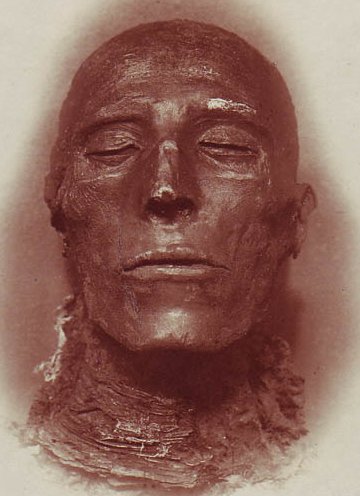Sunday, September 30, 2012
Blogging Sax Rohmer’s The Mask of Fu Manchu – Part Four
Sax Rohmer’s The Mask of Fu Manchu was originally serialized in Collier’s from May 7 to July 23, 1932. It was published in book form later that year by Doubleday in the US and the following year by Cassell in the UK. It became the most successful book in the series thanks to MGM’s cult classic film version starring Boris Karloff and Myrna Loy that made it into theaters later that same year.
The fourth and final part of the book opens with the voyage from Cairo to London. The Marconi operator brings Shan Greville a telegram from Sir Denis Nayland Smith of British Intelligence warning him that agents of Dr. Fu Manchu will attempt to capture the relics of El Mokanna that Sir Lionel Barton unearthed during his recent expedition in Persia. The irascible parliamentary minister who argued with Sir Lionel before boarding the ship turns out to be the agent of the Si-Fan who breaks into the purser’s safe overnight and absconds with the box he believes contains the priceless relics. He is rescued at sea by a plane which takes him and the contents of the box (concealed inside an inflatable rubber ball) aboard and disappears into the night.
This is a curious development on Rohmer’s part for while he is to be applauded for casting an Englishman as the villainous agent rather than an Asian, Greek, or Egyptian, the choice of disguise is a ridiculous one. Sir Denis quickly determines that there is no such parliamentary minister after cross-checking the passenger list. He wires Greville to have the man arrested as a spy. Greville inexplicably decides to ignore these instructions until morning thus allowing the theft to occur.
Rohmer had already telegraphed to the reader that the box in the purser’s safe was a decoy and the true relics were hidden in plain sight in Greville’s cabin thus robbing the entire episode of all drama. Regrettably, Rohmer had painted himself into a corner. There was no other character to unmask than the MP if he was to advance the plot quickly enough. He had previously shown Sir Lionel trick Fu Manchu’s agents with decoys earlier in the story. Two such deceptions would clearly try readers’ patience and so Rohmer was forced to cut corners resulting in a sloppy resolution to what should have been a suspenseful passage. As it stands, it is a rare flaw that is found late in an otherwise excellent story.
TO CONTINUE READING THIS ARTICLE, PLEASE VISIT THE BLACK GATE ON FRIDAY.
Labels:
Fu Manchu,
pulp fiction,
Sax Rohmer,
thriller,
Titan Books,
Yellow Peril
Subscribe to:
Post Comments (Atom)



.jpg)
No comments:
Post a Comment